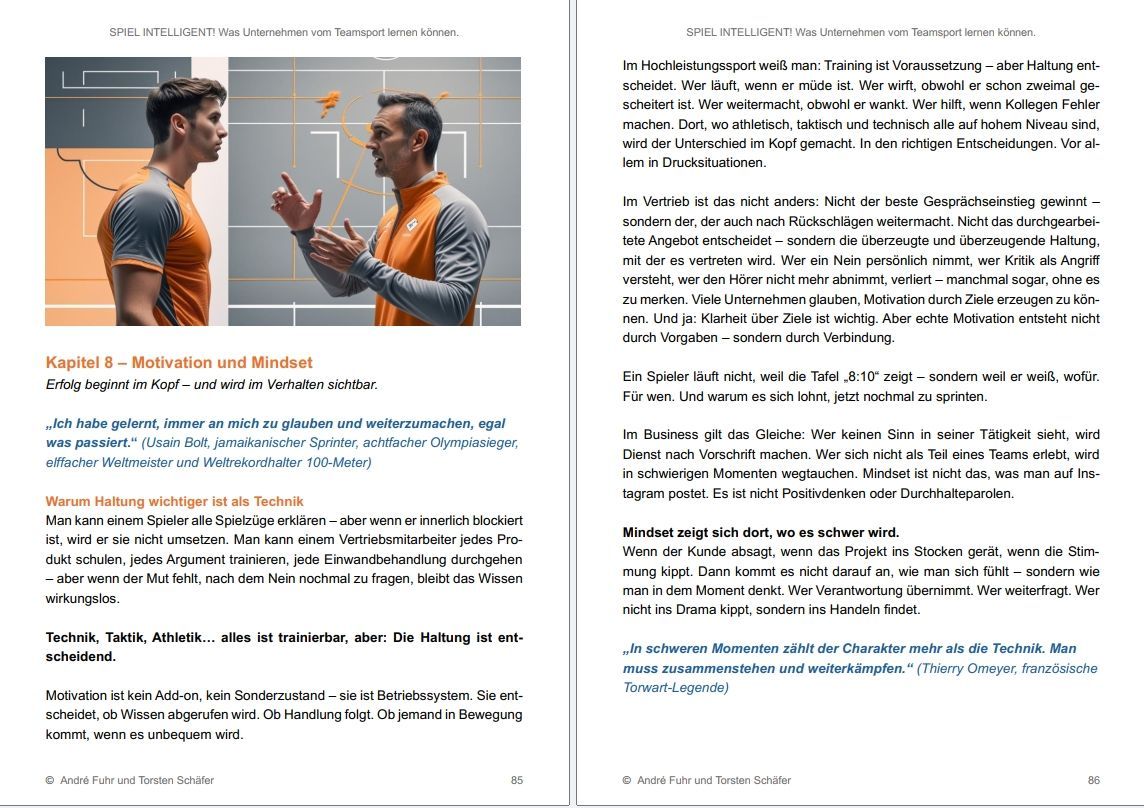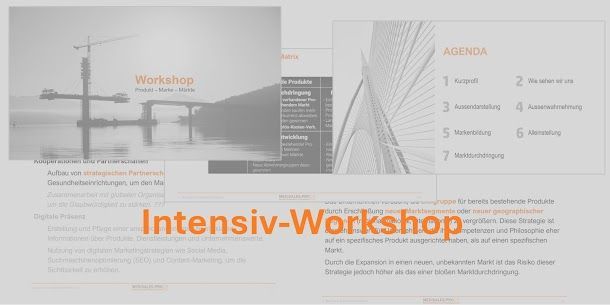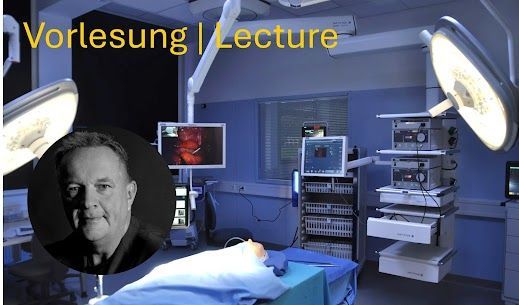Back in mid-February, I conducted a workshop with a client in the capital goods/medical technology sector, where we analyzed and discussed the company's extensive product range against the backdrop of its strong brand and active markets. We examined direct and B2B sales activities, as well as its own social media activities in comparison to the competition. One important question was "How is the company perceived in the market?" I addressed and presented in advance. Furthermore, we reviewed the USPs together and developed suggestions for adaptation. For me, it was a very exciting and interesting day with detailed insights into the company and its sales activities. The workshop was rounded off by feedback from the sales management (although we agreed that I would not mention the company name): "Hello Torsten, thank you again for the great workshop and your email with the presentation and additional information. Each of us learned something from it. We should definitely continue this..."
News
2025-09
Arvos – Inspirer for game intelligence
With Arvos we have created a symbol that embodies our concept of Game intelligence in business embodies. His name is derived from the Finnish words for "value" and "dignity." Thus, Arvos represents the conviction that true success is not based on chance, but on principles that create lasting value—in sports as well as in the corporate world.

Arvos is not a mascot, but an inspiration and source of ideas.
It reminds us that peak performance comes from the fusion of intelligence, strategy, and attitude. The raven has always been considered one of the smartest animals: it plans ahead, solves problems creatively, observes closely, and adapts flexibly to new situations. Qualities that determine victory or defeat in sports—and that, in business, make the difference between average and excellence.
In our presentation, Arvos combines both worlds: With the handball in one hand and the laptop in the other, he symbolizes the connection between Team spirit, dynamics and tactics with Analysis, structure and foresight. It embodies the ability to act intelligently in both gaming and business situations while maintaining a clear overview.
These very aspects – intelligence, strategy, adaptability, observation skills, and inspiration – are the foundations we pass on to companies, clubs, and associations in our workshops and keynote speeches. We also incorporate them directly into our work as HR development coaches and interim managers – practical, professional, and individually tailored to each situation.
Those who develop game intelligence recognize opportunities more quickly, organize collaboration more efficiently, and build partnerships that create added value for both sides.
Arvos stands for more than just a symbol. It is an invitation to take the next step – towards more clarity, more cleverness and more top performance.

2025-08
And now I'm writing a book!
The origin story of “Play Intelligently!”
It didn't start with the thought: "And now I'm going to write a book." - quite the opposite.
The real trigger was my almost 40-year journey through sales, leadership, and sports. Hundreds of customer meetings in the field and in sales management. Countless trade fair participation as an exhibitor. Sales meetings, presentations at conferences, pitches to investors, lectures at university, and most recently, many conversations with sports officials and top athletes. In the process, I've gotten to know all worlds – Medium-sized companies, international corporations and dynamic start-upsEach of these environments has its own rules, its own opportunities and challenges.
But a completely different question was crucial and preoccupied me: What services and what real added value can I offer my clients in interim management – based on all this experience?
I always found the answer in the same principles that have guided me for decades: trust. Clarity. Timing. In sports, they're immediately apparent: A wide player starts running because he trusts the pass will come. A playmaker sets the tone. And if the timing is wrong, the opportunity is lost.
It's no different in sales. Companies need clear roles, mutual trust, and the ability to seize opportunities at the right moment. These very building blocks are also crucial in interim management: I come to the company to make a quick impact – and that's only possible if I build a team out of individual players that's ready to take action immediately.
On this path I have André Fuhr, a successful handball coach in German women's handball. Together, we developed the exciting business-sport-business transfer. André brought the perspective of elite sport, and I brought my experience in management and sales. Together, we were able to demonstrate how close the parallels truly are—and how much companies can benefit from the successful principles of sport.
Also fascinating is the connection between the history of handball and the history of sales – right down to the combination in sponsorship. While handball has evolved over decades, even centuries, from simple forms of the game among the Greeks to modern professional sport, its sales have also gone through various eras: from ancient marketplaces to the structured sales systems of the Hanseatic League to data-driven key account management. Today, these two worlds converge in sponsorship: Sport needs business partners – and companies use sport to create closeness, trust, and emotions. It is precisely in this intersection that enormous potential lies for both sides.
And with all this background and experience, without ever having planned it, a book was ultimately created. A book written not out of a desire to be an "author," but out of a passion to share experiences that can help others win their game.
"I just wanted to organize my experiences to make an even greater impact in interim management—and suddenly, a finished book lay on the table. Maybe it's like in sports: You train for yourself, and at some point, you unexpectedly find yourself on the winner's podium."
2025-07
Corporate management with sportsmanship – What sales management can learn from top teams.
What makes top teams in professional sports so successful – and what can companies learn from this for their sales management?
In our current analysis we show how
Key figures from professional handball can serve as a benchmark for modern sales management. Whether in sports or business, those who understand their performance can manage, train, and perform better.
Data-driven leadership is key – from the "conversion rate per play" to the "timeout usage" by managers. The best teams in handball and sales have one thing in common: A coordinated game systemin which every participant knows his or her role and acts according to clear goals.
Our perspective: Those who rethink leadership focus on game intelligence, team dynamics – and excellent KPIs.

2025-06
Foreign trade - a story with background

As part of a project, we were faced with various issues related to customs and foreign trade, which we were able to successfully resolve. Following this, we had interesting discussions with Patrick Nieveler, the founder and managing director of PASANI Academy, about his academy and its focus areas.
The following short story shows why he is so successful with his company.
The Export Trap: Why the CEO of a MedTech company faces a prison sentence due to a lack of customs knowledge
Michael took a deep breath as he opened the email. "Customs inspection – suspicion of incorrect export processing." His heart beat faster. As Head of Operations at an up-and-coming medical technology company, he had believed he had everything under control—until now.
His company also supplies medical devices to Russia and Belarus. He was aware that there are currently special regulations and licensing requirements in these areas. He had established testing routines within the company for this. Everything was under control, he thought.
But then a shipment got stuck in customs, triggering an audit of all exports and processes. The problem: Due to the incorrect determination of the customs tariff number, goods requiring a permit were exported without an export license.
Michael was stunned. "The customs authorities initiated criminal proceedings against the board personally. Because the responsibility lies with him as the person responsible for exports."
The lesson?
Michael now knew:
"We should have trained our people early on!" If his teams had the
Pasani Academy Customs Training If they hadn't attended, this would never have happened. With the Pasani training flat rate, every department in the company receives exactly the know-how they need for their daily work. This way, falling into such a trap in the future can be prevented across the board.
🔹
No mistakes. No risks. Full control.
🔹
Pasani Academy – because ignorance is expensive.
🔹 brochure
2025-02
Product - Brand - Markets
2024-12
Team maker meets sales professional
2024-06
lecture






